EngageMedia Blog
Press Freedom Investigation in Papua Highlights Challenges for Local Journalists

Eight journalists from eight Indonesian media outlets traveled to West Papua last week to investigate media freedom and the safety of journalists in the region, after an international delegation called on Indonesia to address press freedom violations in 2015.
The World Association of Newspapers and News Publishers (WAN-IFRA) launched the investigation on January 30 in Jayapura, Merauke and Timika, where the Media Freedom Committee-Indonesia followed local journalists from Papuan news organisations for five days.
WAN-IFRA’s Asian Regional Manager Eko Maryadi said: “We expect the program to send eight reporters from Jakarta, from non-Papuans to do reporting, that they can understand the issues, difficulties, and problems faced by journalists in Papua.”
The Committee reported eight key findings:
- Government officials and security personnel are discriminatory towards OAPs (“original Papua persons”)
- Journalists are stigmatised as pro-independence or pro-Homeland, leading to intimidation and fragmentation among the journalist community
- Environmental damage through development programs are underreported due to heavy restrictions on the press
- Strengthening journalism in Papua relies on an improved code of ethics, understanding of the journalist profession, use of technology and a business model that maintains the independence of the press
- Journalists need to actively change the media perspective of Papua
- 11 out of 16 foreign journalists who recently gained access to Papua were monitored by intelligence officials
- Sexual harassment of female journalists in Papua is underreported
- The quality of public services and competition depends on equitable access to communication infrastructure and information technology
More detailed reports were documented on the Committee’s blog, featuring daily updates and interviews with journalists from Tabloid Jubi, Papua Salam, Mongabay.co.id and many more.
Journalists from the Papua South Post shared stories about police and government intimidation, including two publication bans in 2007 and 2008, being threatened with criminal law, and a prohibition on reporting on President Joko Widodo’s Merauke investment program.
A journalist in Timika recalled a terrifying experience of being held at knifepoint and then stabbed. Another pointed to the difficulties faced by female journalists and the prevalence of sexual harassment.
The investigation marks one month before Indonesia will host the World Press Freedom Day in Jakarta on March 3, an honourable hosting position that the Pacific Freedom Forum (PFF) criticised Indonesia for holding due to ongoing restrictions and violations in Papua.
In July 2016, PFF Chair Titi Gabi urged Jakarta to “ensure that there is open access to West Papua for foreign media, and an end to abuses against local media.”
Whether any changes will be made in the near future is questionable. Just recently, Suara Papua’s website was blocked for SARA and publishing “negative” content, despite the government insisting that it does not censor journalistic websites.
Featured Filmmaker: Bonny Lanny
Tell us who you are as a filmmaker and how you began your career?
Before joining Papuan Voices, I made videos in my hometown which were mostly recordings of Christian songs, as well as some indigenous songs. My early works in 2011 were more like video clips, and produced my first documentary only when I joined Papuan Voices in 2014.
My first film was about a report for Forum Masyarakat Jayawijaya on the denouncement of the erection of a military building in Wamena - A movement I was also involved in. I also did photo documentation, shot demonstrations, and the activities of my friends, all of which I put together as a video report.
In the beginning, I made films without any training. I just made them spontaneously, acted based on my own plans. I made them by simply putting content together such as text with photographs. After I joined Papuan Voices, I started to understand the steps needed, such as writing a script beforehand and all sorts of other techniques.
Can you tell us about the video production scene there?
Now, we have so many Papuan children studying outside of this island. But there rarely are any who study music or film. They mostly apply for degrees in Law or Economics, but don't have links to this kind of work. So it's only us (in Papuan Voices) who maybe understand about the situation here. This is why we try to teach our brothers and sisters, based on what we know from our experiences. That is very important.
What do you think about Indonesian audiences in relation to Papuan issues?
On one occasion, I held a screening in University Negeri Jakarta where I played several videos. And I played one film about Freeport (a mining company). At that time, in Papua, many indigenous people held demonstrations about police brutality towards protesters, some of whom had been shot by the police.
After that event, I began to understand that the people in Jakarta don't know anything about the situation in Papua. I mean the real situation. They have the idea that Papua is very rich and all that the people in Papua live in luxury, especially seven tribes which receive yearly donations from Freeport. So they think they must be wealthy, have fancy houses and cars, all those sorts of things.
These mindsets emerged because Freeport broadcasts their own information and only present the good side of things, and ignored all the bad things that happened to ordinary people. But yesterday we had a screening in Bali, and then in Yogyakarta, after which people (Indonesian audiences) began to understand that the situation in Papua is not like what they think it is.
National and local media in Papua are privately owned or owned by the government. We call it "red plate" media because it only publishes beautiful images of Papua. They rarely expose the many failing policies of the government. My films are about these failures, all the lesser known issues, and there are so many. This is so we can expose the failure of their policies in Papua and outsiders can see what's really happening in Papua.
Do you agree that video has the power to persuade and change people?
I think using film is much more suitable for that nowadays because most of the younger generation who are still studying in University, let alone those who don't have any high education or drop out, don't read much. If they've dropped out, they won't read books but they do like watching films. From my analysis, people enjoy watching films about issues and they quickly understand them. Its ability to influence is much more than with reading books. It's much slower with books.
Finally, what's your message to young Papuan artists out there?
In Wamena for example, there are not many people who make their own videos or songs as I have. It's still hard to find this kind of people, so for now I think it will need and go step by step. I produced songs, made them into a DVD, and sell my own music. For most people, even if they can write music, they still need people from outside Papua to help them to record and produce their albums. Everything for the music video, shooting and editing must be done outside Papua.
I've recently watched films that have been produced by young locals. Even though they are still very rough and elementary, it's still progress for youth in Papua. If you compare us with elsewhere, we have a delay of access to information and technology. It's very slow. So to be able to compete with others, we need to go step by step, slowly. If we force it to be quick, it's only going to make things more difficult.
Read more featured filmmaker interviews from the Asia Pacific region here.
Free West Papua Campaign Launches Global Petition for Independence Referendum
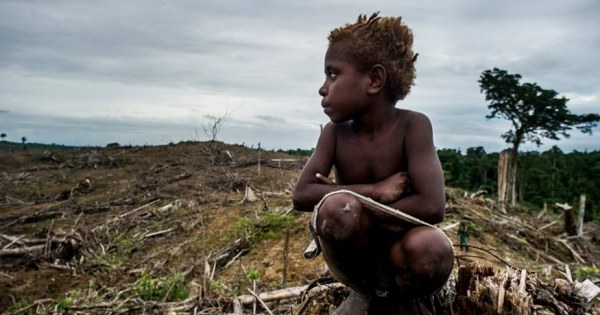
On 24 January 2017, the Free West Papua Campaign launched a global petition on AVAAZ in support of the Westminster Declaration demanding an internationally supervised referendum for West Papua.
A supervised referendum would enable Papuans to vote on independence – a chance that activists claim they were robbed of in the 1969 “Act of Free Choice”, when less than 0.01% of the population were allegedly handpicked and coerced to vote for integration with Indonesia.
In just a few days since its launch, the petition has already garnered 11,611 signatures, passing its initial goal of 10,000 and still accepting more contributions.
The global petition will remain open until August 2017. It will then be carried by the Swim for West Papua Team across 69 kilometres of Lake Geneva and personally handed to António Guterres, the Secretary-General of the United Nations.
West Papua’s struggle for independence gained international attention when seven Pacific Island nations raised the issue of Indonesia’s human rights abuses in Papua to the UN General Assembly in September 2016.
In October, the UN Committee for the Elimination of Racial Discrimination initiated an early warning and urgent action procedure, and requested Indonesia to formally respond to allegations of racial violence by mid-November. There are no records of their response.
The Free West Papua Campaign recently launched the hashtags #BackTheSwim and #LetWestPapuaVote on social media.The global petition can be signed here.
Yangon Nights: Film Screenings for Minority Rights
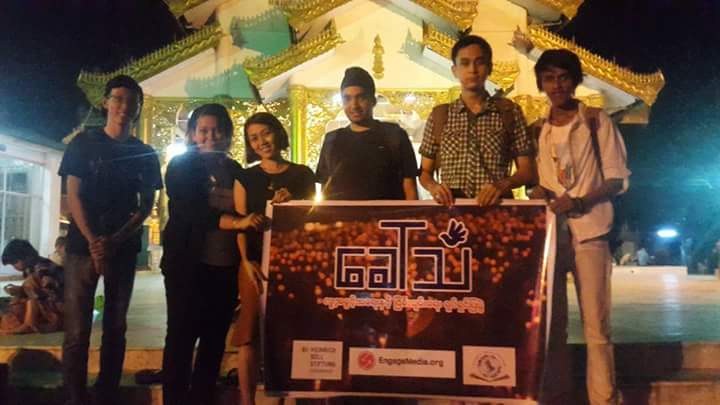
After the success of our first indoor screening on 23 October 2016, we decided to host a second indoor screening for the Khaw Than minority rights film series at Phandeeyar. Over 80 people attended the event and the discussion panel with the filmmakers went really well.
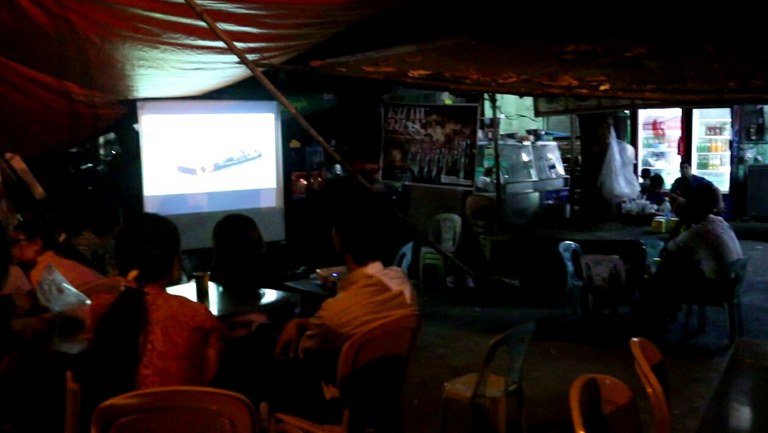
Then on 30 December 2016, in collaboration with the Yangon Youth Network, we held our final screening at the Kyinmyintaing tea shop, where we showcased a selection from the Khaw Than series including, 'Sound of Silence', 'My Mother is Single', 'A Letter from Civil War' and 'I Wanna Go to School'. The films addressed ethnic, women and children’s rights.
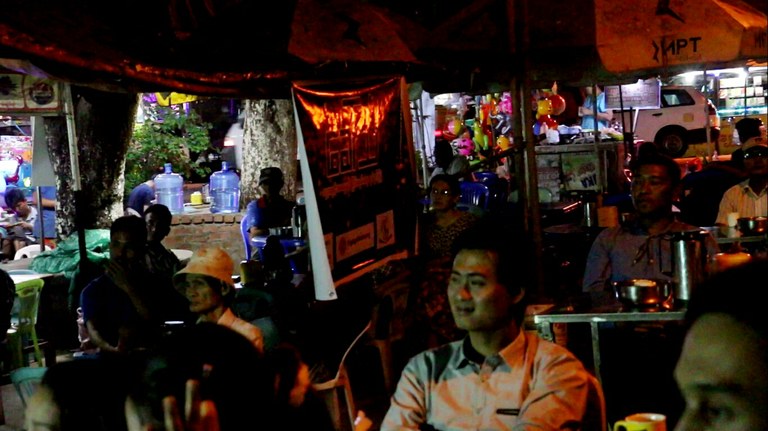
The rustic tea shop was the perfect place to hold our night of documentary screening. Whether sipping on Myanmar tea and samusar, a premium coffee, or a soft drink, the tasty drinks and friendly atmosphere was sure to put our audience at ease.
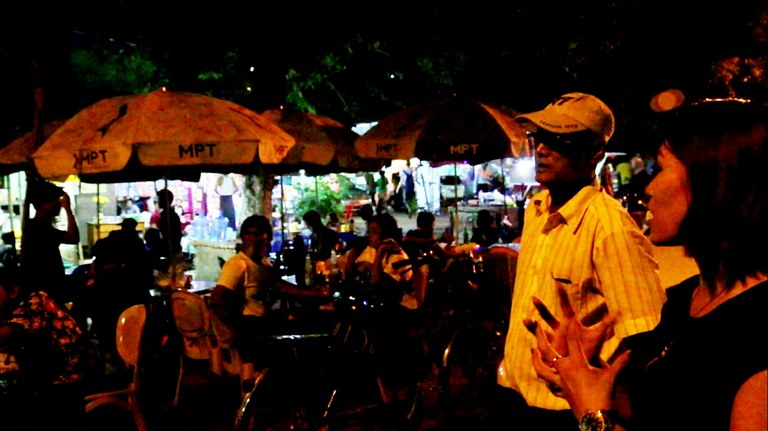
Most of the people at the event felt free to join in and share their thoughts, both before and after the screening. One of the attendees commented, “Screening documentaries in tea shops is really great. You can watch documentaries at home but in this kind of venue, you can discuss your point of view with different people. I think this is the difference between watching a documentary at home and here.”
Istirahatlah Kata-Kata: A Film Review
Istirahatlah Kata-Kata, the critically acclaimed film about poet-cum-activist Wiji Thukul, premiered last week in 14 cities across Indonesia.
The film depicts the period of Wiji Thukul’s life when he was on the run from Indonesian authorities during the Suharto government’s crackdown on intellectuals and activists in 1996. Thukul was forced to flee from his hometown in Solo, Central Java to Pontianak, Kalimantan for eight months, moving houses and changing names to shield his identity.
In May 1998, when he returned to Java to participate in anti-government protests, Thukul suddenly disappeared. His whereabouts are still unknown today.
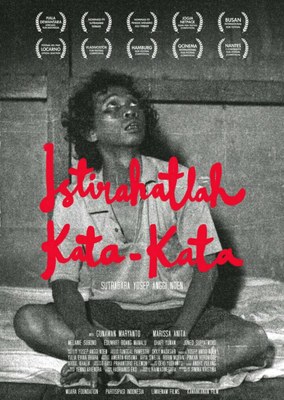
Before director Yosep Anggi Noen’s film, most people knew about Wiji Thukul because of an infamous line from his poem, “Peringatan” ("Warning”). It was supposedly the most-quoted line of poetry towards the end of Suharto’s regime: “Hanya ada satu kata: lawan!” (There is only one word: fight!”)
However, those expecting an action-packed film in Istirahatlah Kata-Kata will be gravely disappointed. Instead, the film is a quiet and poetic take on Thukul’s days of hiding, and explores the more solemn themes of isolation, loneliness, paranoia and fear. It also portrays the difficulties faced by Thukul’s wife and children, whom he had to leave behind in Solo, and who are continuously interrogated by the police.
These are emotions that anyone can relate to, and that we do not typically associate with grandiose heroes. In this way, Noen has humanised Thukul. The result is a moving film about a poet who touched the lives of millions of Indonesians with simple but compelling words.
“The movie is my attempt to see Wiji Thukul’s spirit, who is able to note down his daily life into powerful words,” Noen said in an interview with the Jakarta Post.
He also said during the premiere in Pontianak that he wanted the movie to “serve as a reminder for the young generation about missing activists.” (Jakarta Post)
Wiji Thukul is one of thirteen activists still missing since 1997-1998. The other activists include Suyat, Yan Afri, Sonny, M. Yusuf, Noval Alkatiri, Dedy Hamdun, Ismail, Bimo Petrus, Abdun Naser, Hendra Hambali, Ucok Siahaan, and Yadin Muhidin (Stop Impunity).
Istirahatlah Kata-Kata has participated in various international and local film festivals, receiving nominations in Germany, Switzerland, Russia and the Philippines. It also won the Golden Hanoman Award at the Jogja Asian Film Festival and 2016 Best Film by Tempo magazine.
Indonesia Blocks Nearly 800,000 Websites Including Suara Papua
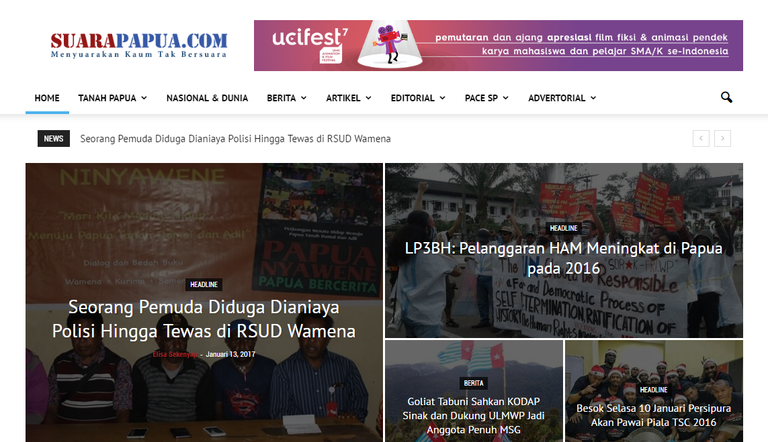
Several days ago, the Indonesian government announced that it had blocked 800,000 websites since December 2016. According to Samuel Abrijani Pangerapan, the director general of Information Application at the Communications and Information Ministry, 90% of these websites contained pornographic or gambling material, while “some were simply spreading hoaxes” (Jakarta Post).
Pangerapan stressed that the government did not block journalistic websites. Journalists must abide by the Law on the Press and register with the Press Council, he argued, and claimed that “journalistic” websites lacking these credentials were therefore lawfully censored (Tempo).
His statement comes just a month after the Legal Aid Institute for the Press (LBH Pers) condemned the government’s shutdown of the news website, suarapapua.com, for containing “negative” content.
Suarapapua.com regularly covers human rights violations in West Papua, such as the recent illegal detention of peaceful demonstrators (including a newborn and children aged 4-17 years) who participated in the Trikora protests in December 2016 (Suara Papua).
Activists at LBH Pers are considering taking legal action against President Joko Widodo’s administration for violations against the freedom of press under Article 18 of the 1999 Press Law (Jakarta Post).
According to Pangerapan, the owners of blocked websites can appeal to a control and monitoring body and request for “normalisation” (i.e. the lift of censorship) after meeting certain requirements. However, it is unclear what these requirements demand of websites such as suarapapua.com.
Pangerapan encouraged Indonesian citizens to seek more details at the website http://trustpositif.kominfo.go.id/, which states that the purpose of TRUST+ is the “protection of society against ethical values, morals and rules that do not fit the image of the Indonesian Nation.”
As of 11 January 2017, more than 766,000 websites were blocked for pornography, 2100 for gambling, 85 for radicalism, 23 for SARA (secular sentiment) and 2 for security. There have also been 264 cases of “normalisation”.
Despite the government’s positive spin on TRUST+ and its censorship program, these developments reflect a worrying trend in increased online surveillance (read more: Digital Freedom and Privacy Under Attack in Indonesia). Digital rights, which have gained significant popularity and attention since Edward Snowden, include the rights to information and privacy, both of which are being violated in Indonesia.
Plumi now on Debian Jessie, Ubuntu 16.04 and Centos 7
We are very excited to announce that after much effort, Plumi is now available to install on Debian Jessie, Ubuntu 16.04 (latest stable) and Centos 7.
The latest code is available here on Github: https://github.com/plumi/plumi.app
Documentation on how to install is available here: https://github.com/plumi/plumi.app/blob/master/README.rst
Further documentation including an introduction, installation, theming and maintenance guide has been updated here: https://mgogoulos.trinket.io/plumi-4-5
This means our free open source video platform now works across these up-to-date and secure major Linux based operating systems. Free community media infrastructure is needed now, more than ever before, and we are very proud to offer this with Plumi.
We want to heartily thank Markos Gogoulos for all his hard work to get us here, and Mist.io for supporting EngageMedia in this work.
Anna Helme
on behalf of EngageMedia
The Digital Rights Movement in Myanmar is Growing -- And EngageMedia Gets to be a Part of It!
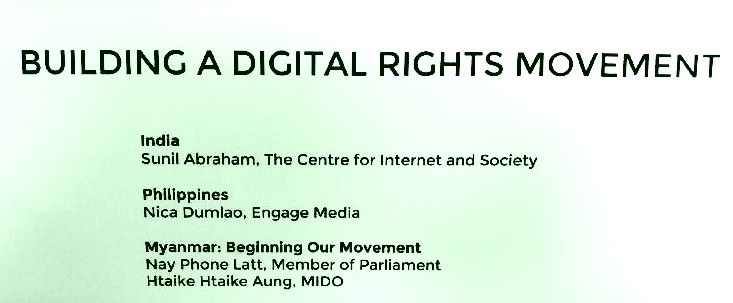
What a difference a year makes!
Last year, EngageMedia collaborated with Phandeeyar and the Myanmar ICT Development Organisation (MIDO) to hold a one-day event in Yangon to discuss digital rights with human rights organisations and other allies. That event was attended by 18 participants, and tackled the basics of relating digital rights to human rights with a focus on the Myanmar context.
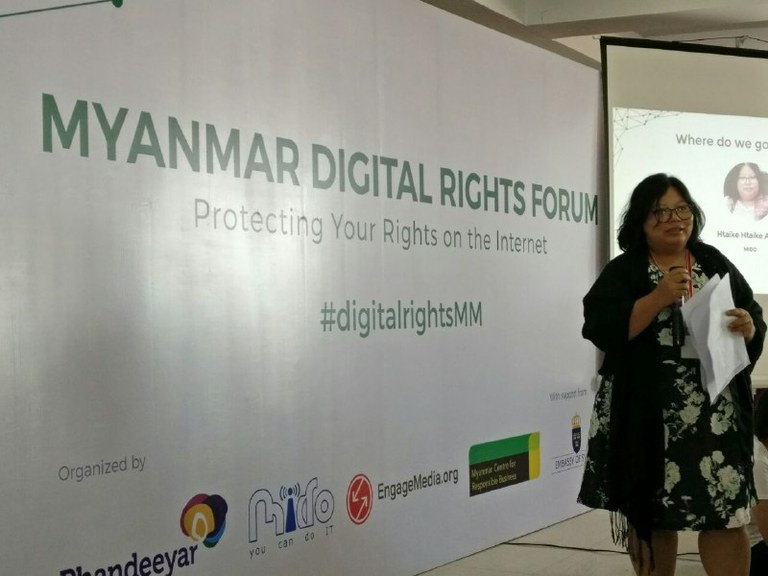
Last week, for a day and a half, the Myanmar Digital Rights Forum (MDRF) was held -- with over 90 participants, including 10 from outside of Myanmar. The MDRF was the product of the continued partnership among Phandeeyar, MIDO, the Myanmar Centre for Responsible Business (MCRB), and EngageMedia. But more than that, the MDRF was a milestone in the digital rights movement -- a result of the years of policy advocacy and awareness raising, capacity building, participation in regional and international events, and hard work by the local groups to bring to the foreground the issues of internet freedoms.
In the last year alone, the MDRF collaborators have been busy playing critical roles in events in Myanmar. Phandeeyar organised a Tech Camp to Strengthen Transparency and Accountability in April, a meet up on the Violence Against Women in the Digital World in July, and a Right to Information Law event in November. Between traveling around Myanmar to raise awareness on responsible internet use and internet rights, running campaigns against hate speech, conducting research on internet usage in Myanmar, and implementing a telecentre initiative with Telenor, MIDO co-organised a camp on the Politics of Data with Tactical Technology Collective (TTC) in September. MCRB has continued to hold consultation meetings with various stakeholders to discuss the implications of the different laws and bills on human rights in Myanmar over the past year.
Unfortunately, all of these initiatives were triggered by troubling trends in Myanmar in relation to digital rights and internet freedoms. Journalists, bloggers, activists and ordinary internet users have continued to be arrested under Section 66(d) of the Telecommunications Law -- as of end of November 2016, 20 individuals have been arrested. Hate speech online has continued to be an issue in Myanmar, and the increasing instances of harassment of women and LGBT individuals have worsened. Beyond these on-going issues, another has emerged in the last month -- the Privacy and Protection Law that the Parliament is rushing to pass. According experts, how that particular law has defined ¨privacy¨ is problematic in its vagueness and its lack of comprehensiveness. More than that, there has been no public consultation on the law.
Needless to say, it´s been a busy year for digital rights in Myanmar.
And the MDRF came at exactly the right time. The MDRF allowed the long-time advocates for digital rights (both those working locally and internationally) the platform to discuss issues with different stakeholders. The topics tackled in the MDRF reflect the current and emerging trends in and threats to digital rights in Myanmar: surveillance, content restrictions, and lawful interception standards; freedom of expression and hate speech; harassment of journalists; policy reform; right to information; national identification; and privacy issues in the current laws. The MDRF was also an opportunity for digital rights movements from across the region to learn from each other -- and to encourage the growth of the Myanmar digital rights movement -- with sessions that shared experiences around building social movements on policy reform, and looking back on the digital rights movements in India, the Philippines and Myanmar.
The MDRF also created a space where the participants could brainstorm what actions to take to address the daunting digital rights issues in Myanmar. On the second day, specifically, the participants formed themselves into groups to discuss specific action ideas and initiatives:
- Engaging Facebook on Hate Speech
- Anti- Hate Speech campaign
- Open data basics and awareness-raising
- Law review towards policy reform
- Campaign against the 66(d) arrests
- Addressing online harassment of women and LGBT
- Building the capacity of the youth on digital rights
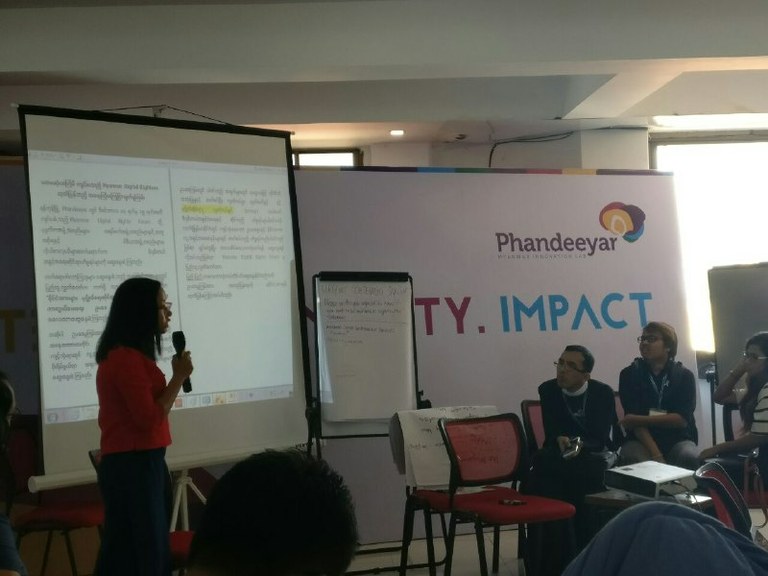
At the end of the MDRF, a range of concrete actions and plans were made. Of these, a statement against the Privacy and Protection Law was signed by the participants of the forum, and sent to Parliament at the end of day two.
EngageMedia is fortunate and thankful to have been able to be part of this, and to witness the continued growth of the digital rights movement in Myanmar. And we will continue to support this growing movement.
Using Documentaries on Myanmar's Minorites to Promote Peace
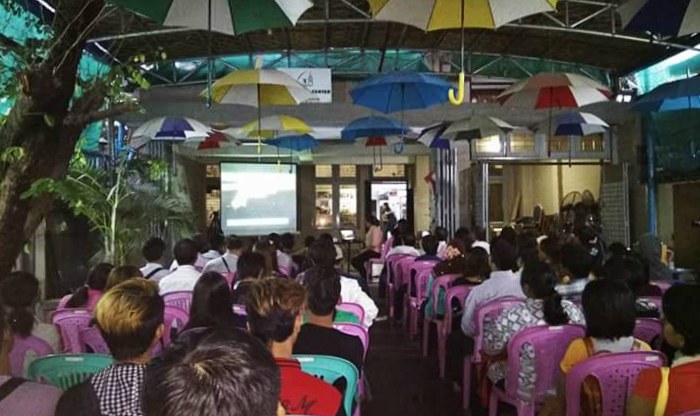
After our first screening in Yangon on the 26th of October 2016, we then moved on to our next screenings in Mandalay and Sintgu, which were held in collaboration with Metta Campaign and Rainbow Organisation Sintgu on the 10th, 11th, and 12th of November.
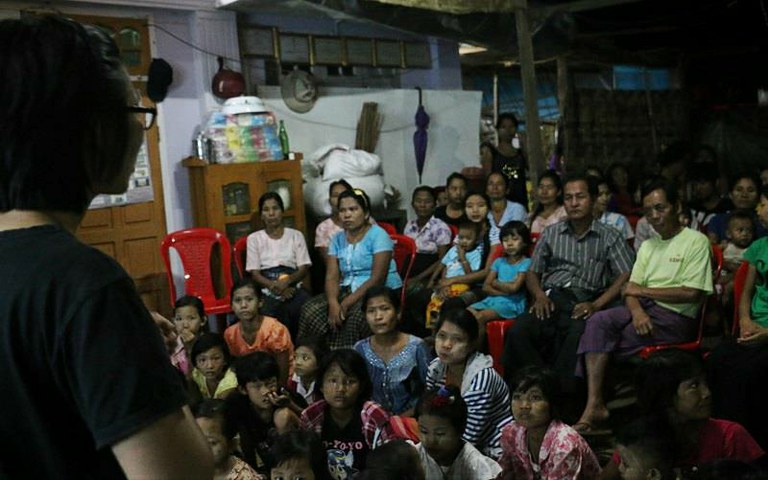
There were over 300 people in attendance at the screenings and a high level of engagement in the discussions held after the films. Among the films screened was Lei Lei Aye’s women’s rights film ‘My Mother is Single’ along with her film ‘Soul Mate’ which was recently awarded at &Proud Film Festival.
Along with Lei Lei Aye’s contributions, we screened the Khaw Than collection's most popular documentary, ‘Sound of Silence’, winner at the Spain Gerona Film Festival, and ’I Wanna Go to School’ which was awarded at the Human Rights & Human Dignity Film Festival.

Ma Phvo, a transgender woman of Rainbow Organisation Sintgu stated, "These screenings have revolutionised our thoughts on minorities. Through these video interviews, we have gained a deeper understanding of our rights and can now peace build more effectively within the current situation in Myanmar".
Watch out for our next blogpost on the two final Khaw Than screenings in Yangon.
Critical Situation for Indonesia's LGBT Communities in 2016
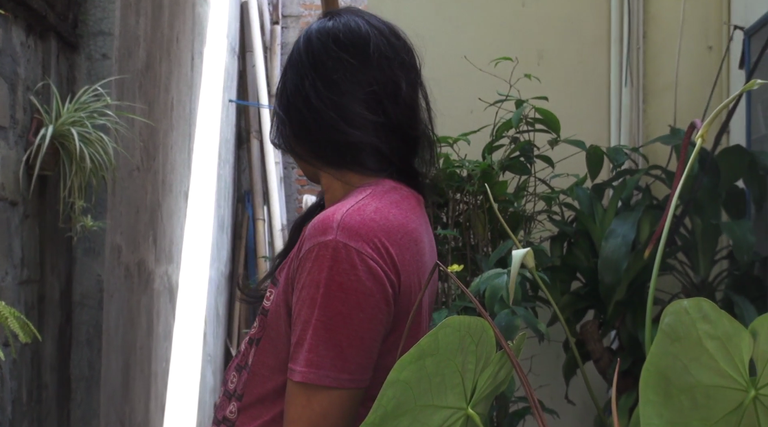
Indonesia is hardly a utopia for those practicing an alternative or different lifestyle, and the brunt is especially felt by those of alternative sexual orientations. The country is still largely conservative and floats unsure of itself through the 21st century attempting to arrive at some meeting point between traditions with modern ideals. In the last few years, political and social movements against the LGBT community are becoming more frequent and intense.
In November we woke to the news of an attack against a dozen homosexual Indonesians gathering in Jakarta. It was led by the Indonesia Police in collaboration with one of the largest fundamentalists groups. The crackdown also happened online, which leaves little to no safe space for LGBT peoples in Indonesia.
In January this year, Indonesia’s Technology, Research & Higher Education Minister, Muhammad Nasir, stated that Indonesian universities must uphold standards of ‘values and morals’ and should not support organisations promoting LGBT activities. This only added to the pressure felt by LGBT groups in academic settings.
Diplomatically, Indonesia has joined a group of 17 countries, including Saudi Arabia, to block UN plans on including LGBT Rights in their new urban strategy plans. Earlier in the year, 12 academics from Aliansi Cinta Keluarga (Family Love Alliance) petitioned the Constitutional Court of Indonesia to change existing laws to make it illegal for consenting adults to involve themselves in homosexual acts, an act they said should be punishable by up to five years in jail. The situation was made much worse by conservative media groups.
The lack of LGBT voices in national media is a huge problem as they are not able to provide a discourse that challenges the views of conservatives. This silence is in part due to government crackdowns on LGBT organisations. Our Voice’s SuaraKita has been shut down several times by hackers and the government filter systems. The same is happening to other LGBT organisations and media outlets who promote tolerance.
While my intention in writing this article was not to display desperate notions, I honestly find myself desperate at the state in which the LGBT community finds itself in currently and the further difficulties that they will face ahead. We cannot allow this to happen, we need more action!
More info:
http://www.bbc.com/news/world-asia-35657114
http://www.thejakartapost.com/news/2016/10/14/government-shows-anti-lgbt-stance-global-forum.html
https://www.hrw.org/news/2016/08/23/indonesia-court-reviews-anti-lgbt-law
Organizations:
 Subscribe to blog feed
Subscribe to blog feed